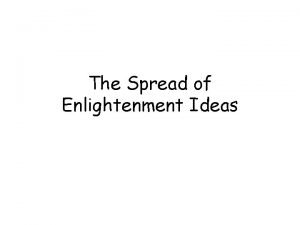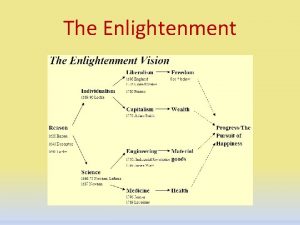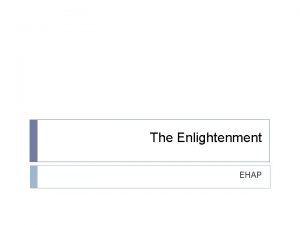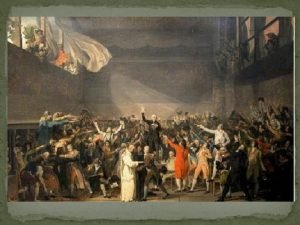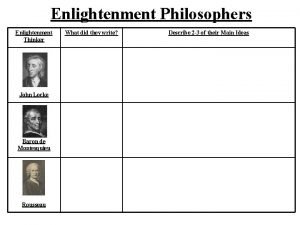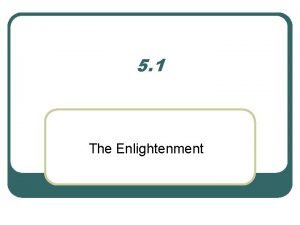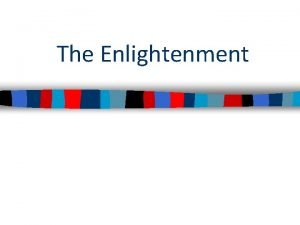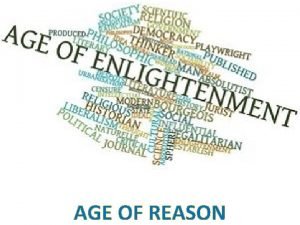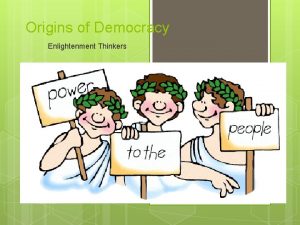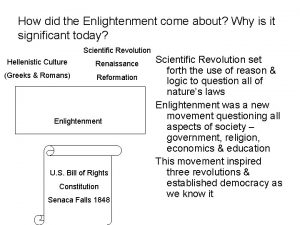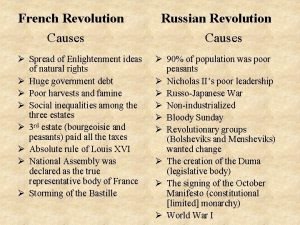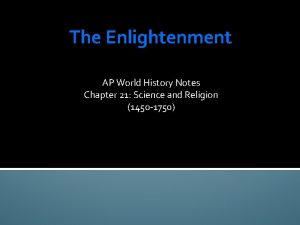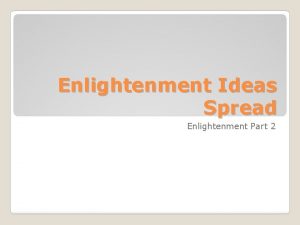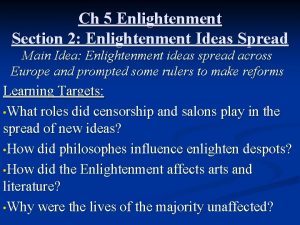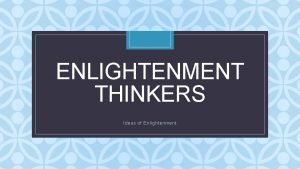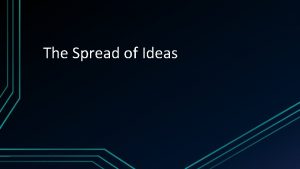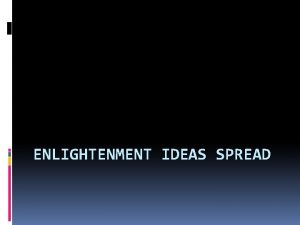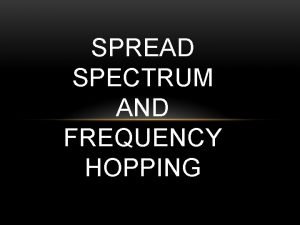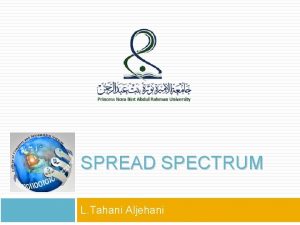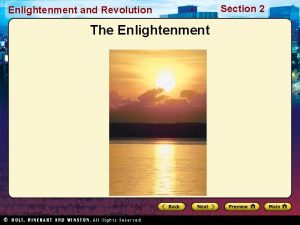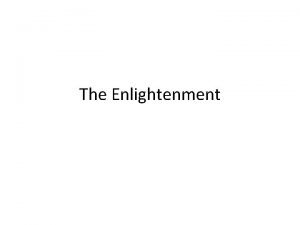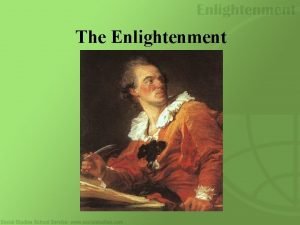The Spread of Enlightenment Ideas A World of












- Slides: 12

The Spread of Enlightenment Ideas

A World of Ideas • Ideas were often spread in salons • Salons = large drawing rooms where women entertained philosophers, writers, artists, and intellects met to discuss ideas and enjoy artistic performances • Marie. Therese Geoffrin Most influential Salon hostess

Other ways Ideas spread • Diderot’s Encyclopedia – first book where leading scholars of Europe put articles and essays • Encyclopedia annoyed the Catholic Church – the Church found Enlightenment ideas corrupt and immoral • Ideas also spread through music, newspapers, and pamphlets

Emergence of middle class helps ideas spread • There is Denis Diderot, working on his scandalous encyclopedia - • New middle class has more time to read and appreciate art

Art and Literature in the Age of Reason • Baroque = grand ornate style that preceded the Enlightenment • Two famous Baroque musicians = Bach and Handel • Eventually leads to classical music with famous composers like Mozart, Hadyn and Beethoven • New style – more elegant and original

Art and Culture during the Enlightenment • Mozart started composing when he was five! • Birth of modern novel; complex and carefully crafted plots. Daniel Defoe wrote Robinson Crusoe about a family stranded on a desert island • Below is Defoe’s quote – what do YOU think it means? • Wherever God erects a house of prayer the Devil always builds a chapel there; And 'twill be found, upon examination, the latter has the largest congregation – Daniel Defoe

Enlightenment and the Monarchy • Enlightened despots = monarchs who embraced the Enlightenment and allowed reform • Wanted ONLY to strengthen own countries, did NOT want to give up power

Enlightened Monarchs • Frederick the Great: committed to reforming Prusisia • Reforms included: – Allowing more religious freedom – Improving education – Reduced censorship – Reformed the criminal justice system and eliminated torture – Called himself “The First Servant of the State” – main goal was to serve and strengthen the state

Joseph II of Austria • 1780 – 1790 • Introduced legal reforms and freedom of the press • Religious tolerance – even for Jews and Protestants! • Got rid of serfdom and insisted that peasants get $

Catherine the Great • She had a horrible marriage and eventually had her husband (Joseph III, the czar of Russia) killed in order to take over the country • Ruled Russia from 1762 - 1796

Catherine the Great cont. • Ruled Russia with absolute authority, but also modernized and reformed the country • Influenced by Beccaria, Montesquieu and Voltaire • Never helped the Russian peasants and eventually gave the nobles absolute authority over their serfs • Also expanded Russia – fought for years for access to the Baltic Sea and the navigation routes in the Black and Mediterranean seas. Also took over much of Poland. • Catherine enlarged Russia and Russia soon became and international power.

More Catherine… • “I like to praise and reward loudly, to blame quietly. ” • “It is better to be subject to the Laws under one Master, than to be subservient to many. ” • “What is the true End of Monarchy? Not to deprive People of their natural Liberty; but to correct their Actions, in order to attain the supreme Good. “ – Catherine the Great
 Spread of enlightenment
Spread of enlightenment Francis bacon enlightenment ideas
Francis bacon enlightenment ideas Voltaire main ideas
Voltaire main ideas Enlightenment ideas
Enlightenment ideas Sino si baron de montesquieu
Sino si baron de montesquieu Enlightenment ideas
Enlightenment ideas John locke enlightenment ideas
John locke enlightenment ideas Voltaire enlightenment ideas
Voltaire enlightenment ideas Rousseau ideas enlightenment
Rousseau ideas enlightenment Enlightenment ideas
Enlightenment ideas Enlightenment principles
Enlightenment principles Enlightenment ideas
Enlightenment ideas Chapter 21 lesson 2 the ideas of the enlightenment
Chapter 21 lesson 2 the ideas of the enlightenment
